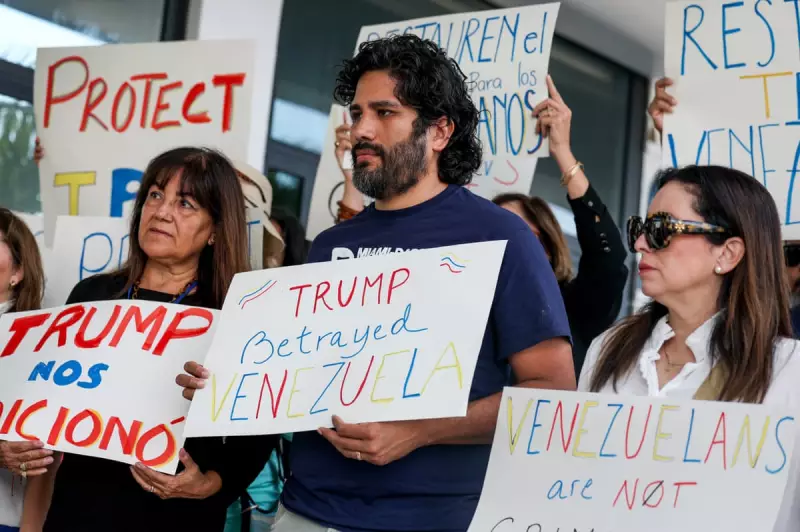
A seismic US court ruling has paved the way for the termination of critical humanitarian protections for hundreds of thousands of migrants from Haiti and Venezuela, in a major victory for the Trump administration's hardline immigration agenda.
The decision, handed down by a federal appeals court, effectively dismantles the Temporary Protected Status (TPS) designation for nationals from these crisis-stricken nations. This legal shift empowers the government to proceed with the removal of individuals who have been living and working legally in the United States under this protected status.
A Precedent-Setting Legal Blow
The ruling represents a significant legal precedent, challenging the long-standing authority of the executive branch to grant humanitarian reprieve based on conditions in other countries. The court found that the manner in which TPS was previously extended did not meet a strict interpretation of statutory requirements.
This judgement overturns earlier injunctions that had blocked the Trump administration's attempts to end the programmes, which were established following natural disasters and profound political instability in the migrants' home countries.
Implications for Hundreds of Thousands
The human impact of this decision is staggering. An estimated 300,000 individuals from Venezuela, Haiti, and several other nations now face the imminent threat of losing their legal status and work authorisation. Many have established deep roots in American communities, with children born in the US and years of contribution to the local economy.
Advocacy groups and immigration lawyers have decried the move, warning of a potential humanitarian crisis. They argue that returning individuals to Haiti, gripped by gang violence and political chaos, or to Venezuela, enduring a severe economic collapse, is unconscionable.
White House Applauds Decision
The ruling has been warmly received by the Trump White House, which has consistently sought to limit both illegal and legal immigration pathways. Officials hailed the decision as a restoration of the "rule of law" and a correct interpretation of congressional intent regarding temporary immigration relief.
This policy shift is expected to become a central feature of the administration's immigration platform as the election season intensifies, framing it as a necessary measure to enforce immigration deadlines and protect American jobs.
The fate of these migrant communities now hangs in the balance, awaiting potential appeals to higher courts and the outcome of the upcoming presidential election, which could dramatically alter the enforcement of this landmark ruling.





